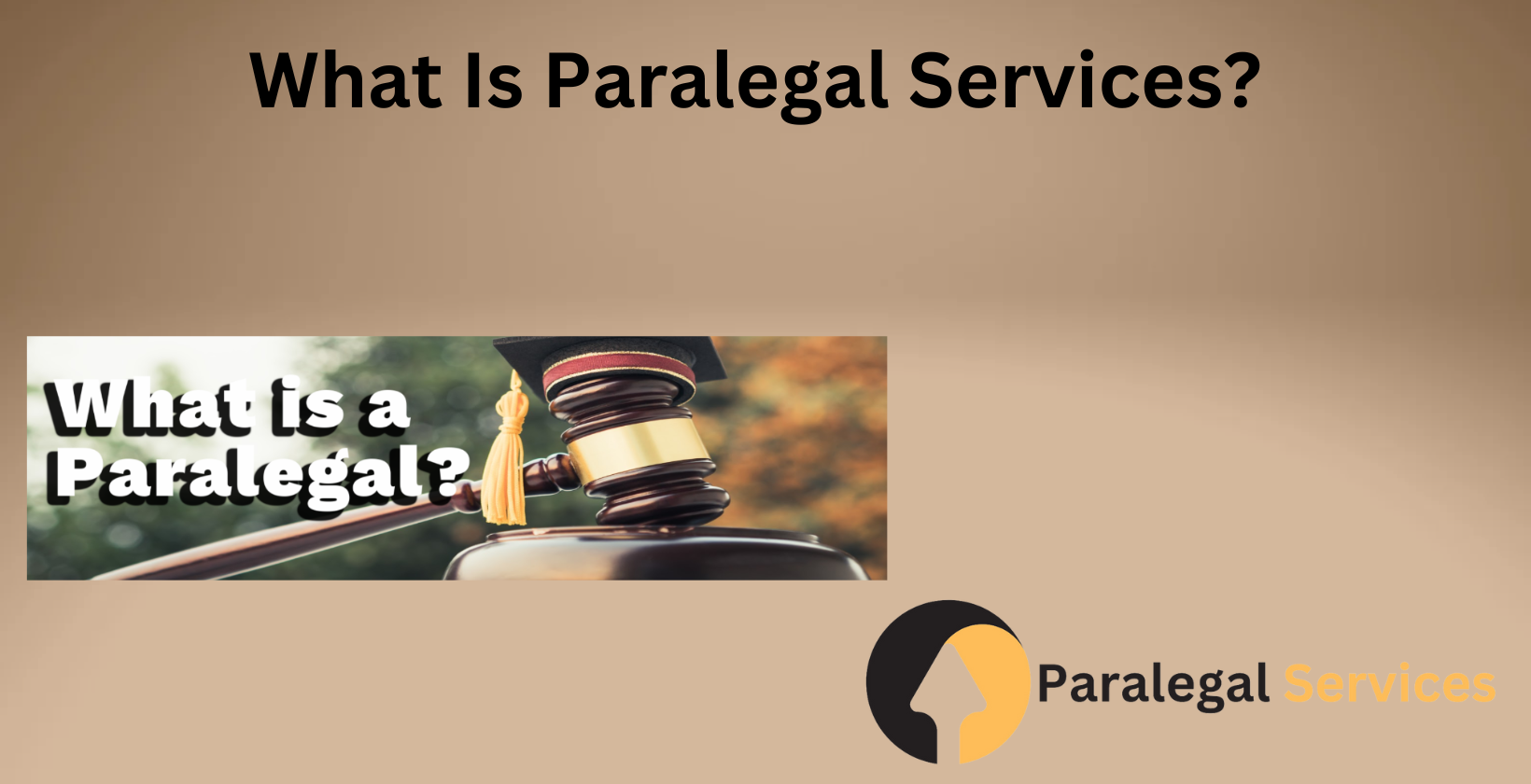Paralegal eviction services assist landlords with the legal process of removing tenants from rental properties while ensuring compliance with state and federal laws. The legal eviction process involves serving proper notices, filing court documents, attending hearings, and obtaining a writ of possession. Landlords must follow specific legal steps to avoid wrongful eviction claims. Paralegals provide cost-effective assistance in preparing eviction notices, drafting pleadings, and guiding landlords through court procedures. Evictions must adhere to local landlord-tenant laws, and failure to follow due process can result in delays or legal penalties.
How Does the Legal Eviction Process Work?
The legal eviction process follows a structured sequence of steps to ensure compliance with landlord-tenant laws. The first step is issuing a notice to the tenant, which informs them of the lease violation or non-payment of rent. The type of notice depends on the reason for eviction, such as a Pay or Quit Notice for unpaid rent, a Cure or Quit Notice for lease violations, or an Unconditional Quit Notice for severe infractions.
If the tenant does not resolve the issue within the specified period, the landlord proceeds to file an eviction lawsuit (unlawful detainer action) in the appropriate court. The court then serves a summons and complaint to the tenant, giving them an opportunity to respond. Some states require mediation before proceeding to trial, while others allow tenants to contest the eviction in court.
The next step is the court hearing, where both parties present their case. If the judge rules in favor of the landlord, they issue a judgment of possession. The tenant may have a short period to vacate voluntarily or appeal the decision. If they do not leave, the landlord obtains a writ of possession, authorizing law enforcement to remove the tenant forcibly.
State-specific variations affect the eviction timeline and legal requirements. For example, California mandates a five-day response period for tenants after receiving an eviction lawsuit, whereas Texas provides only three days to vacate after a judgment. Some states require judicial eviction, while others allow a quicker summary eviction process.
Legal compliance is critical throughout the eviction process. Improperly served notices, missing court deadlines, or failure to provide legally required documentation can delay or invalidate the eviction. Landlords must ensure that all paperwork is correctly drafted and filed to avoid legal disputes or financial penalties.
Who Serves an Eviction Notice?
Eviction notices are typically served by landlords, attorneys, paralegals, or authorized court officers. In most states, landlords can personally serve notices to their tenants, but this method may lack legal credibility if challenged in court. Hiring a professional process server or sheriff ensures proper service and documentation, reducing the risk of legal disputes.
Self-served notices are legally valid in some jurisdictions, but they carry a higher risk of tenants claiming improper delivery. Professionally served notices, especially by certified process servers or law enforcement, provide stronger evidence in court. Some states, such as New York and Florida, require landlords to use a third party to serve eviction notices.
Best practices for serving notices include hand delivery, certified mail, or posting on the tenant’s door (when legally permitted). Certain states, including California and Illinois, require a proof of service affidavit to confirm that the notice was properly delivered. Ensuring compliance with state laws when serving eviction notices is essential to prevent delays or legal challenges in the eviction process.
Where Can I Get Eviction Papers?
Eviction papers can be obtained from several sources, including government websites, court offices, and legal service providers. Most state courts offer official eviction forms on their websites, allowing landlords to download and fill them out according to local requirements. Law libraries and county clerk offices also provide standardized eviction documents.
Online legal service providers, such as BestParalegalServices, assist landlords in obtaining and preparing eviction paperwork with legal accuracy. These platforms offer templates, state-specific forms, and expert guidance to ensure compliance with local landlord-tenant laws. Hiring a professional eviction service reduces the risk of errors that could delay the process.
Different types of eviction notices serve distinct purposes. A Pay-or-Quit Notice demands that the tenant pays overdue rent within a set period or vacates the property. A Cure-or-Quit Notice instructs tenants to correct lease violations, such as unauthorized subletting, within a deadline. An Unconditional Quit Notice requires tenants to leave immediately due to serious offenses, including illegal activity or repeated lease breaches.
To ensure legal accuracy when filling out eviction paperwork, landlords should verify the correct notice type, state-specific deadlines, and proper service methods. All eviction forms must include the tenant’s details, lease violation explanation, and deadline for compliance. Consulting with a paralegal or attorney before filing eviction papers helps prevent legal errors and increases the likelihood of a successful eviction.
Where to Get Eviction Document Services for Landlords
Several legal document preparation services specialize in assisting landlords with eviction paperwork. Online platforms such as LegalZoom, Rocket Lawyer, and BestParalegalServices provide step-by-step assistance in completing and filing eviction documents. Local paralegal services and eviction attorneys also offer document preparation tailored to state-specific laws.
The cost of professional eviction document services varies based on complexity. Basic eviction forms from online platforms range from $50 to $200, while full-service document preparation, including legal review, can cost between $300 and $1,000. Some paralegal services provide flat-rate pricing, ensuring landlords know the total cost upfront.
Professional document preparation offers multiple benefits, including legal accuracy, compliance with state laws, and faster processing times. These services help landlords avoid common mistakes, such as serving the wrong notice type or missing court filing deadlines. The legal reliability of professional eviction document services ensures landlords can proceed with confidence and avoid unnecessary legal disputes.
When selecting an eviction document service provider, landlords should consider customer reviews, pricing transparency, and expertise in local eviction laws. Verifying whether the service includes legal consultation or document filing assistance can enhance the eviction process’s efficiency and reduce the risk of rejection by the court.
Do I Need a Lawyer to Fight an Eviction?
Yes, legal representation is necessary in certain eviction cases, especially when complex legal issues, tenant defenses, or large financial stakes are involved. Tenants often need a lawyer when facing wrongful eviction, retaliation claims, or discrimination violations. Landlords may require legal counsel if the tenant contests the eviction, files a counterclaim, or if local eviction laws are highly regulated.
Self-representation is an option for both landlords and tenants, particularly in straightforward eviction cases where the law is clear. Landlords handling non-payment of rent cases with undisputed lease violations can often represent themselves. Tenants may defend themselves when eviction procedures have clear errors, such as improper notice service or missing paperwork.
The cost of hiring an eviction attorney varies. Basic legal consultations range from $100 to $500 per hour, while full legal representation in an eviction trial can cost between $1,000 and $5,000, depending on complexity. Self-representation reduces expenses, but it carries risks, such as misfiling legal documents, missing court deadlines, or misinterpreting landlord-tenant laws. Hiring an attorney increases the chances of winning the case, negotiating favorable settlements, or avoiding eviction-related financial penalties.
What Does an Eviction Lawyer Do?
An eviction lawyer handles legal filings, court representation, and negotiation for both landlords and tenants. They draft and review eviction notices, summons, and complaints to ensure compliance with state laws. In court, they present legal arguments, challenge opposing claims, and advocate for their client’s rights. If necessary, they negotiate settlements, such as allowing tenants extra time to move out or arranging payment plans for unpaid rent.
Eviction lawyers help landlords by ensuring that the eviction process follows legal procedures, preventing costly delays or lawsuits. They assist in cases where tenants claim unlawful eviction, habitability violations, or discrimination. For tenants, eviction lawyers provide defense strategies against wrongful evictions, procedural errors, and lease agreement disputes.
Certain eviction scenarios require a lawyer’s expertise. In California, tenants facing eviction due to rent control violations may need legal defense to challenge unfair increases. In New York, landlords dealing with a tenant refusing to leave after a lease expiration might require legal action to obtain a writ of possession. Cases involving commercial lease disputes, lease fraud, or retaliation claims also benefit from professional legal representation.
How to Evict a Tenant in Los Angeles
The eviction process in Los Angeles follows strict local and state laws, with strong tenant protections under California’s Tenant Protection Act (AB 1482) and Los Angeles Rent Stabilization Ordinance (RSO). Landlords must have a just cause for eviction, such as non-payment of rent, lease violations, or owner move-in. Illegal evictions, including self-help evictions (changing locks or shutting off utilities), can result in severe penalties.
The eviction process begins with serving the tenant a proper notice. A 3-Day Notice to Pay Rent or Quit is required for non-payment of rent, while a 3-Day Notice to Cure or Quit applies to lease violations. For tenants without a lease or on a month-to-month agreement, landlords must provide a 30-day or 60-day Notice to Vacate, depending on the tenancy duration.
If the tenant does not comply, the landlord must file an Unlawful Detainer lawsuit with the Los Angeles Superior Court. The tenant has five days to respond after being served. If the tenant contests the eviction, a court hearing is scheduled. A judgment in favor of the landlord results in a Writ of Possession, allowing the Los Angeles County Sheriff to enforce the eviction.
Common mistakes landlords should avoid in Los Angeles include failing to provide proper notice, using incorrect legal forms, missing court deadlines, and attempting illegal self-evictions. Rent-controlled units have additional eviction restrictions, requiring relocation assistance payments for certain evictions. Ensuring compliance with Los Angeles Housing Department (LAHD) regulations prevents costly legal disputes.
Where to Get Eviction Help in Los Angeles
Landlords and tenants in Los Angeles can access eviction assistance through legal aid organizations, paralegal services, and landlord associations. BestParalegalServices provides affordable legal document preparation and eviction assistance for landlords needing help with notices and court filings. Searching for “paralegal Los Angeles” connects landlords with professionals who specialize in eviction cases.
Free or low-cost legal aid is available through organizations such as Neighborhood Legal Services of Los Angeles (NLSLA) and Legal Aid Foundation of Los Angeles (LAFLA), which offer legal representation for qualifying tenants. Landlords can seek guidance from Apartment Association of Greater Los Angeles (AAGLA) for resources on eviction laws and compliance.
Seeking professional guidance from a paralegal in Los Angeles or a legal aid organization ensures compliance with eviction laws and prevents costly legal errors.
Meet the Author
Annette E. – Distinguished Paralegal at BestParalegalServices
Annette E. is a distinguished paralegal at BestParalegalServices with comprehensive expertise in supporting solo practitioners and small law firms across diverse legal areas, including contract law, family law, and real estate. She specializes in preparing essential legal documents such as contracts, legal briefs, discovery documents, and client correspondence, ensuring each one meets stringent legal requirements and aligns with both state and federal regulations.
Annette brings over five years of paralegal experience, including extensive litigation support as a law clerk. This background gives her a unique insight into the intricacies of legal proceedings, allowing her to provide exceptional service and attention to detail.
With a Bachelor’s degree in Legal Studies and a certification in paralegal studies, Annette is a trusted professional for attorneys seeking reliable and thorough legal support. Her experience and dedication make her a valuable asset for clients and attorneys alike.



